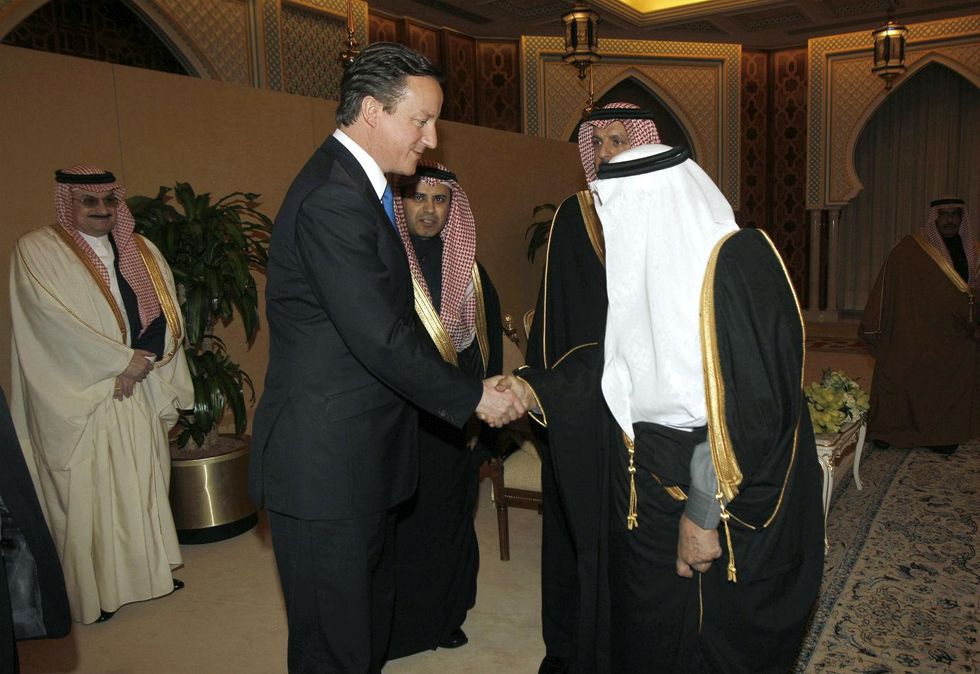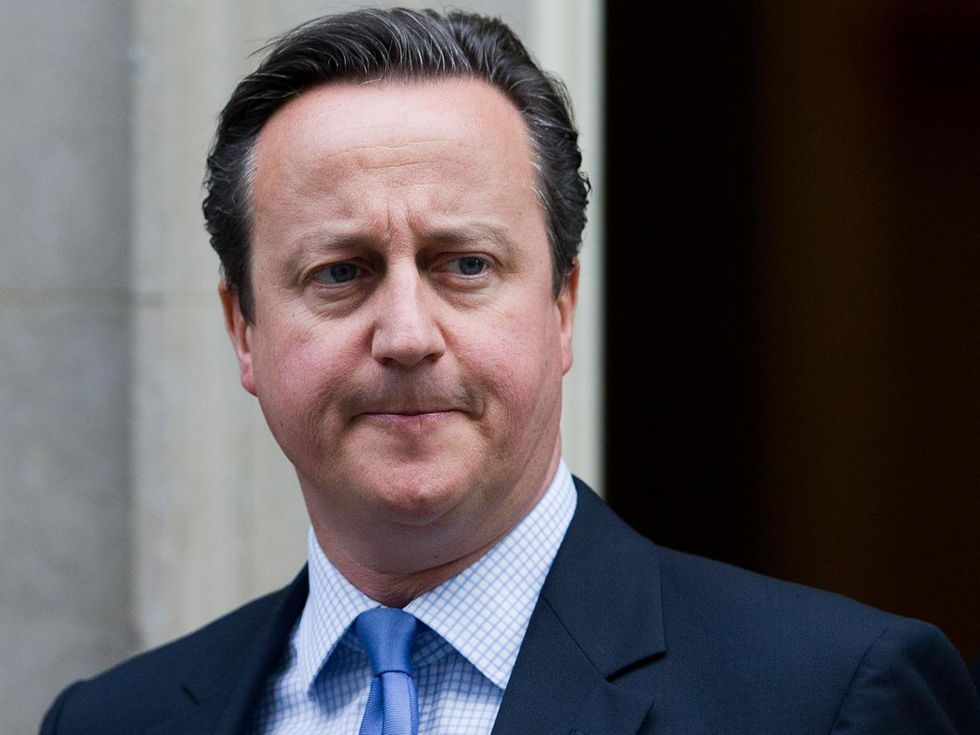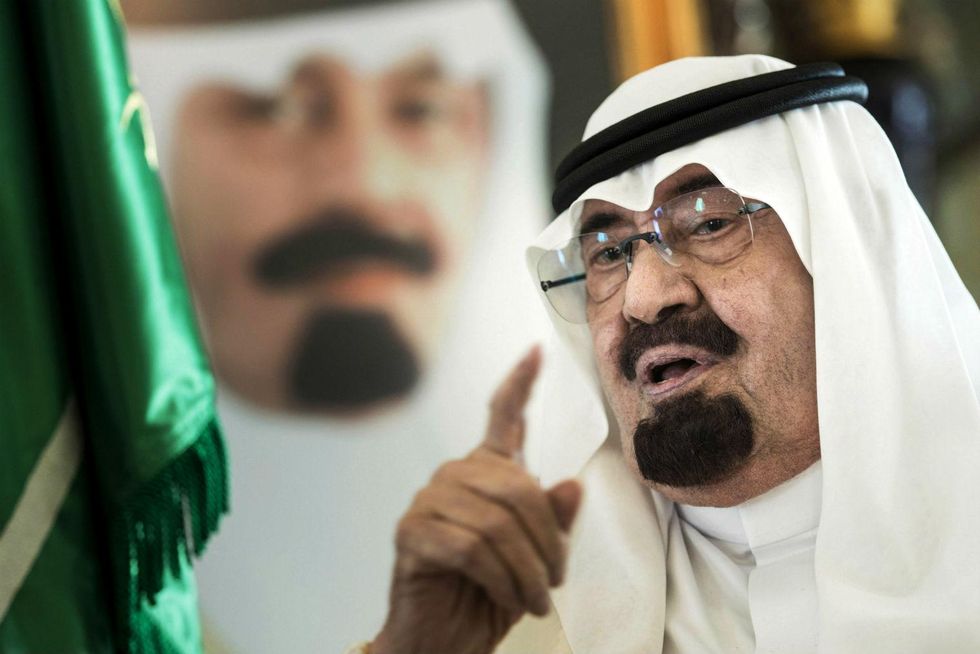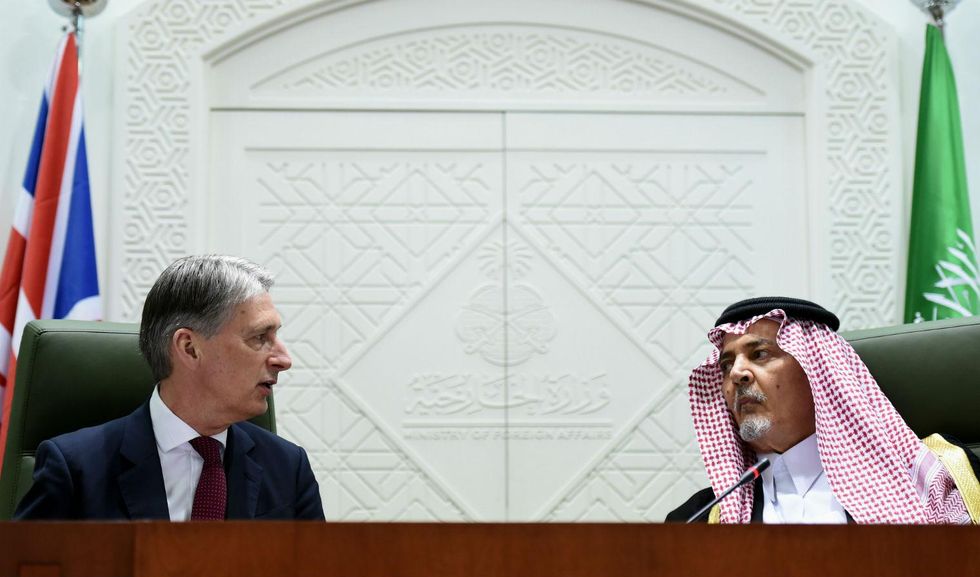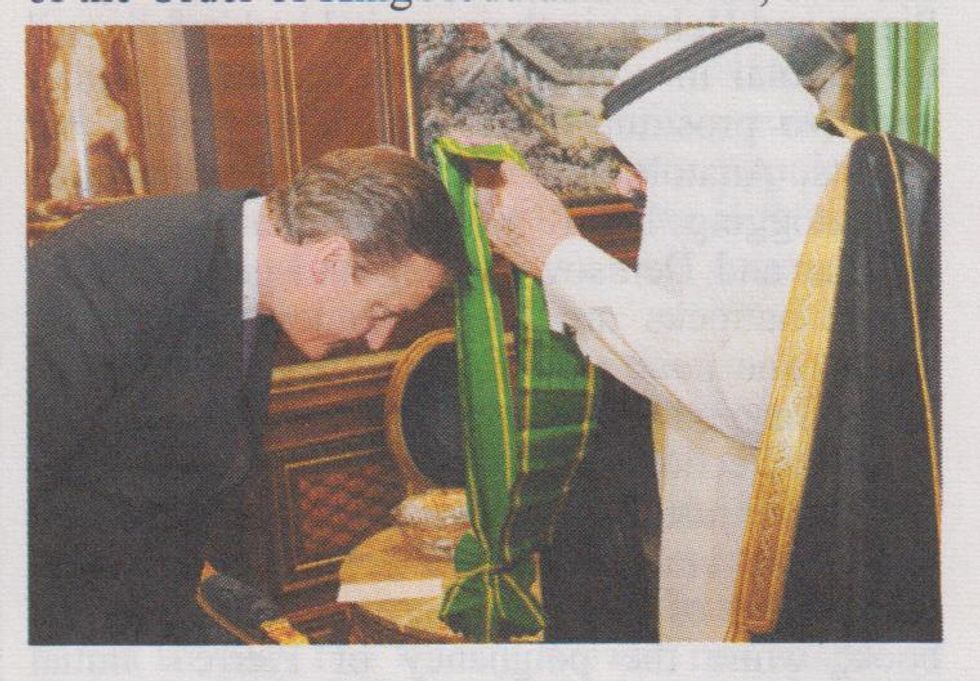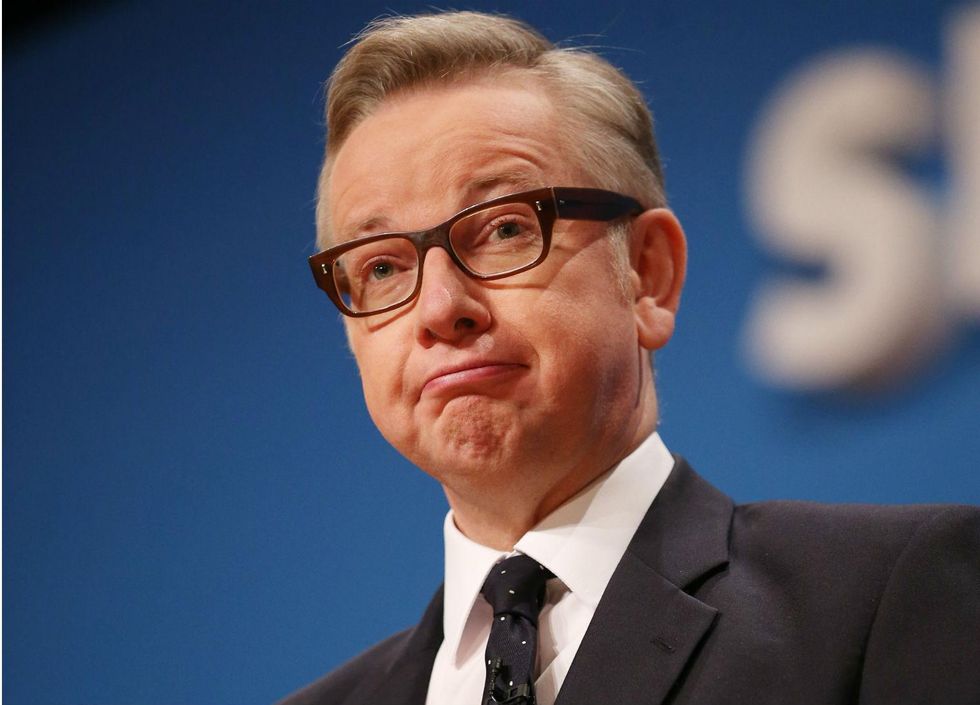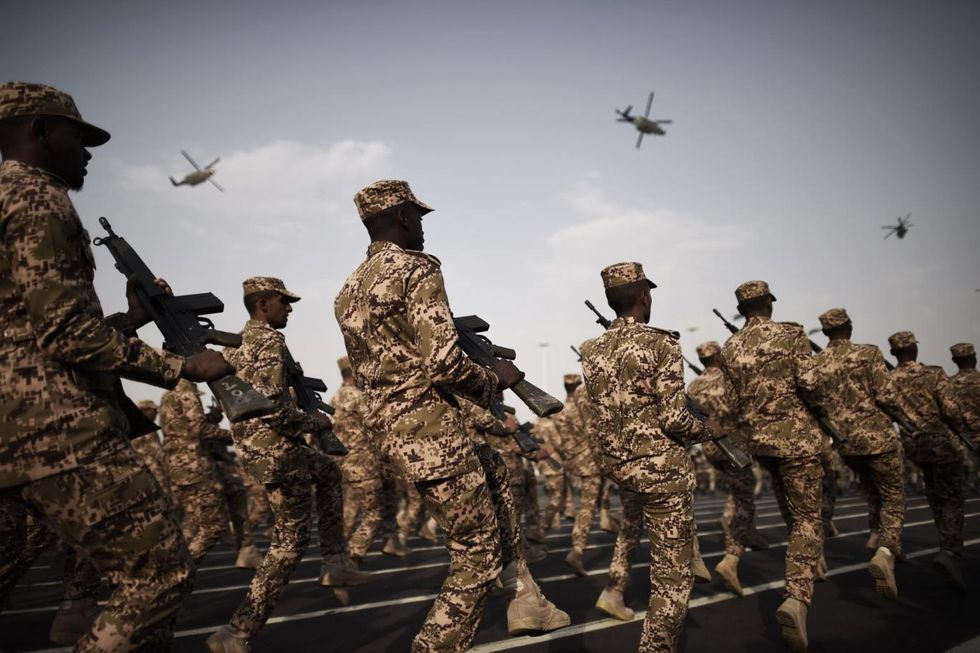News
Bethan McKernan
Jan 28, 2016
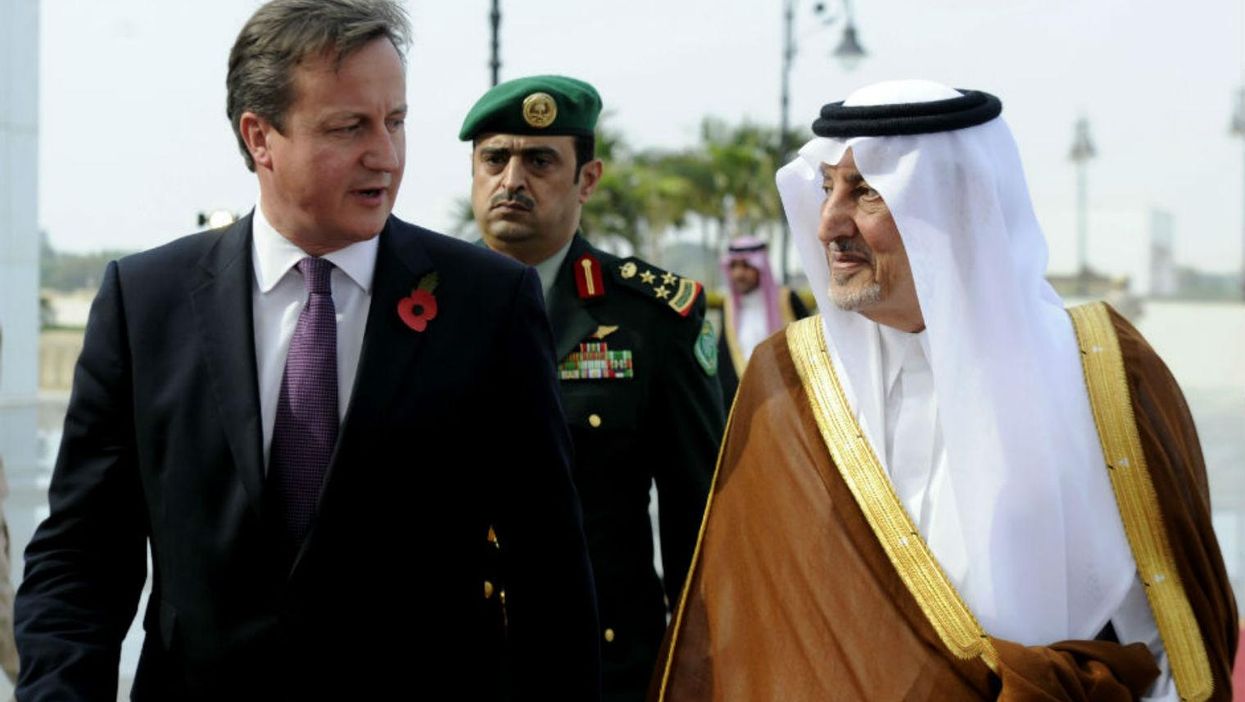
Foreign Office minister Tobias Ellwood has been criticised for recommending that Saudi Arabia makes more of its human rights "successes" during an official visit to the country.
The Independent understands that Ellwood, the Foreign Office minister for the Middle East, made the comments during an address at Saudi Arabia’s National Society for Human Rights in Riyadh.
Human rights groups have rounded on the minister for the suggestion, pointing out that last month Saudi Arabia killed 47 people in a mass execution, some of whom had mental illnesses or were minors at the time of their arrest.
Ellwood, however, isn't the first government member to face criticism over a relationship with the despotic Wahabist state that many watchdogs have said is too cosy.
Just a few recent illustrations of the UK's close ties to Saudi Arabia include:
1. We helped them get on the UN human rights council in a secret vote-trading deal
Diplomatic cables leaked last year showed evidence of the deal from 2013, which led to this interview in which David Cameron refuses point blank to tell Jon Snow what actually happened:
2. The UK has sold at least £7bn in arms to Saudi Arabia since 2010, and much of that equipment is thought to be killing civilians across the Middle East
According to a Parliamentary Committee on Arms Export Controls report, between May 2010 – March 2015, the coalition government licensed almost £4bn of arms to Saudi Arabia - and the Campaign Against the Arms Trade (CAAT) says sales have sky rocketed since then.
UK arms sales to Saudi totalled £2.95bn for the first nine months of 2015, and CAAT says the ultimate destination of much of this equipment is Yemen.
Other weaponry ends up in the wrong hands across the region, fuelling the war in Syria and Sunni jihadist groups across the region.
3. David Cameron didn't say a word for days about Saudi's mass execution of 47 people in December 2015, which sparked global outrage
The prime minister took days to publicly on the killings, even though human rights campaigners urged him to condemn them.
When he finally broke his silence, the PM repeated the government press release's line that they are "opposed to the use of the death penalty under any circumstances".
4. £100,000 of taxpayer money was spent so Cameron could go to the late King Abdullah's funeral
Cameron and five other officials chartered a flight to pay their respects in January last year, at a cost which dwarfed usual overseas trips.
The PM also faced a backlash for the decision to fly flags on government buildings at half-mast following King Abdullah's death.
5. Foreign secretary Philip Hammond accepted a really expensive watch from Saudi Arabia
Last year Hammond accepted a watch worth almost £2,000 from a Saudi sheikh, despite there being a ban on ministers taking gifts worth more than £140.
The foreign secretary has argued that he accepted the £1,950 watch in his capacity as a constituency MP, which meant the ministerial rule did not apply.
6. David Cameron accepted the sash of the Order of King Abdulaziz
Cameron was reportedly awarded the foreign honour in 2012, even though traditionally British representatives do not accept foreign medals and honorary titles, for ‘meritorious services to the kingdom’, Private Eye reported recently.
(The only precedent for this is Tony Blair, who accepted the same honour in 1998, a year after he took office).
7. The Ministry of Justice bought a contract to offer security services in Saudi prisons, which was scrapped after public outrage
The £5.9m deal to provide development programmes in the Saudi prison system was scrapped by incoming Justice Secretary Michael Gove in the last cabinet reshuffle.
There had been opposition to the commercial venture from the get-go because of Saudi Arabia's appalling human rights record and excessively cruel penal system.
8. It was revealed this week that the UK has been allowing British companies to sell spying equipment to Saudi Arabia
Tools that can be used to intercept private phone messages and hack into devices have been sold to the country, which regularly arrests people for political or free speech activity in violation of international human rights law.
Top 100
The Conversation (0)
